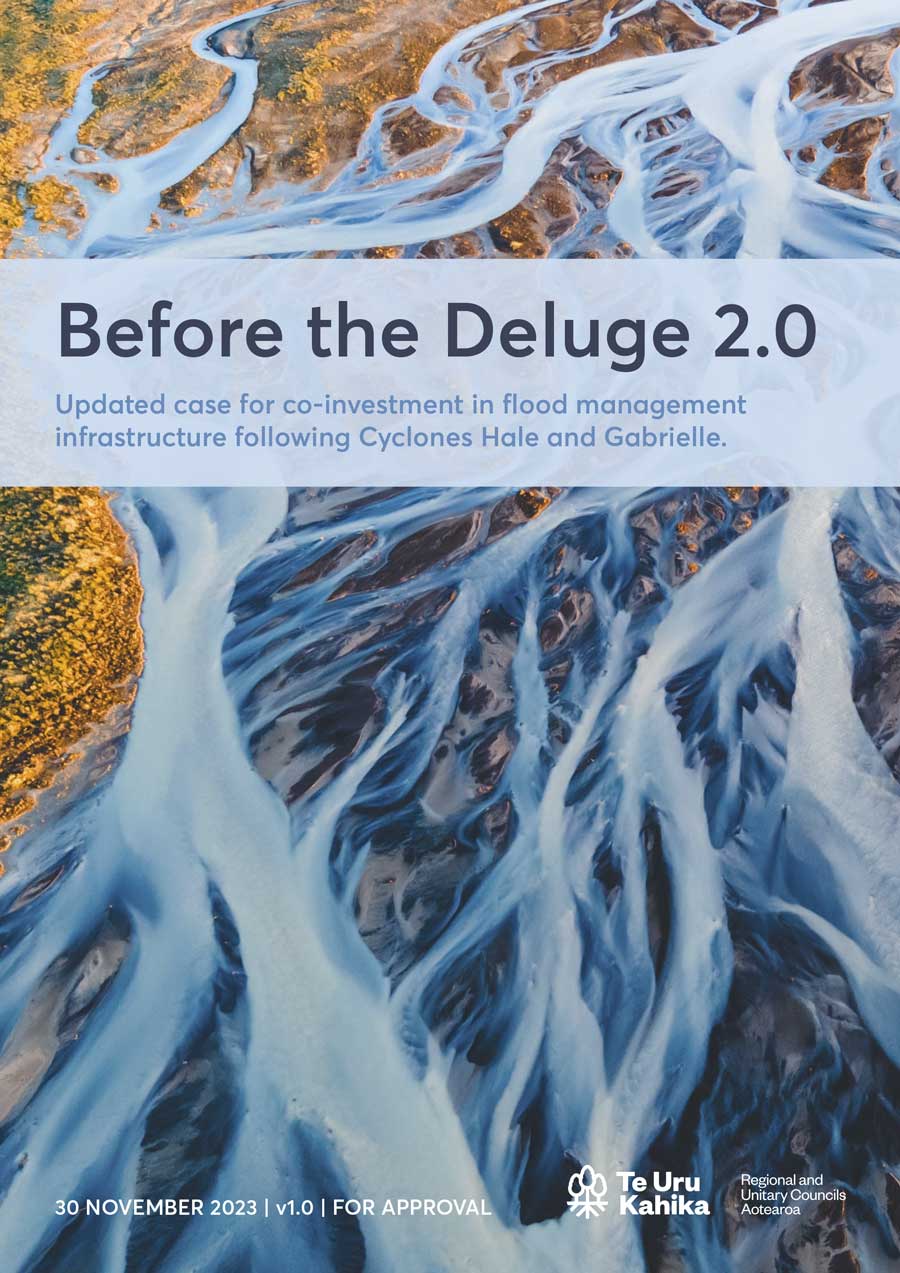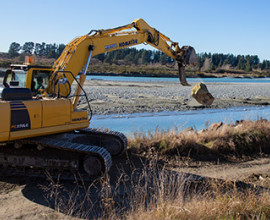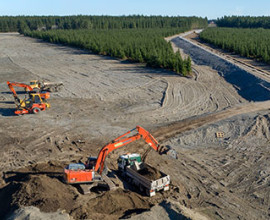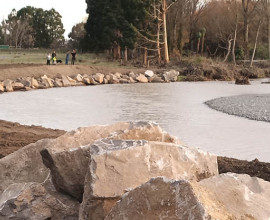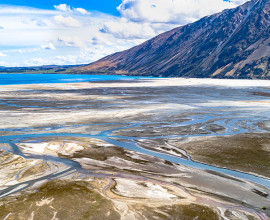Co-investment in future flood protection
We’re working with other councils nationwide to advocate for permanent co-investment from central government for climate resilience and flood protection works.
Flooding is the most common natural hazard in Aotearoa, with a major flood event occurring on average every eight months.
Climate change continues to increase the risk we face when it comes to flooding and, nationally, maintaining and improving flood protection needs increased financial support for communities to be prepared and resilient.
We have been asking central government to permanently co-invest in flood prevention measures and river management with us for many years, as local ratepayers are currently footing 100 per cent of the bill, even though those who benefit from this work are much broader.
Co-investment benefits
Over the past three years, significant one-off investment in our river corridors via COVID-19 recovery funds has meant multiple benefits – social, cultural, and economic – not just environmental.
In Canterbury alone, we’ve been able to:
- Deliver an additional $24.2m of flood protection work
- Support over 70 businesses (82% local contractors and 11% Māori-owned entities)
- Create employment for over a dozen people across the three years of funding.
Co-investment enables us to deliver work faster than rates alone can afford and get our communities better prepared and protected sooner.
Permanent co-investment would allow us to have longer-term conversations about things such as managed retreats or giving rivers more room to move in times when communities aren’t under significant stress from flooding.
Protection more cost-effective than recovery
The case for taking immediate action is irrefutable. Both national and international studies show the return on investment from well-designed flood protection works is considerable: $1 spent protecting a community avoids $5-$8 in direct losses after an event (Before the Deluge Report, November 2023, page 11).
Permanent co-investment would allow us to continue the significant amount of accelerated work delivered over the last few years, protect more vulnerable communities, and minimise/avoid the financial impacts of more frequent and severe floods.
- Download the 'Before the Deluge' summary report (PDF file, 2.46MB)
- Download the full 'Before the Deluge' report (PDF file, 4.85MB)
We will be continuing to advocate for permanent co-investment from central government, to ease the financial burden on our ratepayers, get more done faster and create a sustainable future when it comes to flood risk resilience.
How we got here
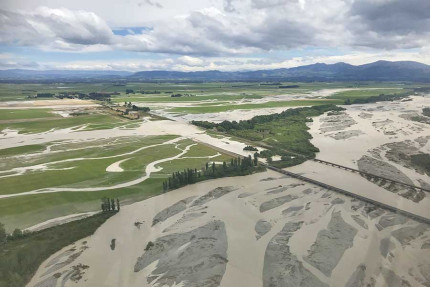
December 2019 - Rangitata River flood event
In December 2019, the Rakitata/Rangitata River broke out of the main channel causing major damage to flood protection, roading, rail, farm, electricity supply and other assets.
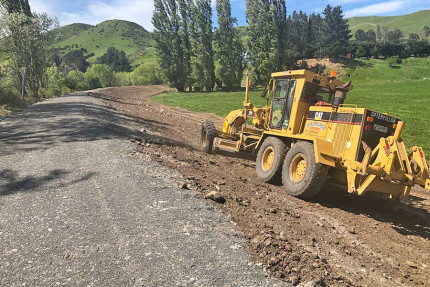
December 2020 - Climate Resilience Programme
More than $24 million was committed to a three-year programme of flood protection projects in Canterbury thanks to $15.5 million in funding from the Ministry of Business Innovation and Employment’s Kānoa - Regional Economic Development & Investment Unit.
Find out more about our Climate resilience and flood protection programme.
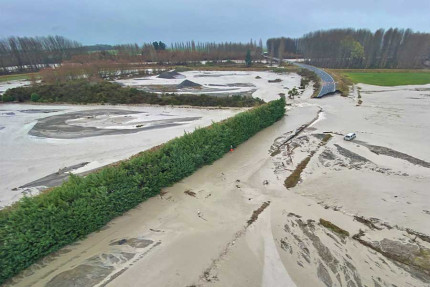
May/June 2021 - Regional flood event
In May/June of 2021, Canterbury experienced extreme flooding in some inland areas that NIWA states might only be expected to happen once in 200 years. Fifteen of our eighty-four water level recorder sites reported their largest flood on record. There was around $20 million worth of damage to our flood infrastructure. The following winter, several high-flow events occurred in quick succession causing additional damage.
Find out more about the 2021 flood repair works.
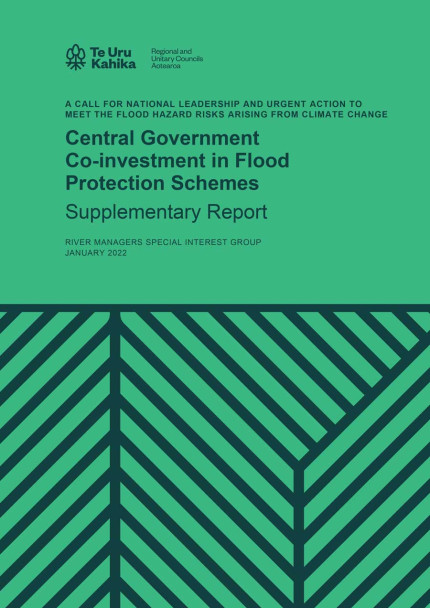
January 2022 - First 'Before the Deluge' report released
We led the release of a report from Te Uru Kahika – Regional and Unitary Councils Aotearoa with a clear and urgent message: New Zealanders cannot afford to bear the future burden of increasingly severe and frequent floods that pose a real danger to lives and livelihoods.
The report calls for national leadership and urgent action to meet climate change-induced flood hazard risks.
FInd out more about our involvement in creating the report - Urgent call for $150 million to protect New Zealanders from floods
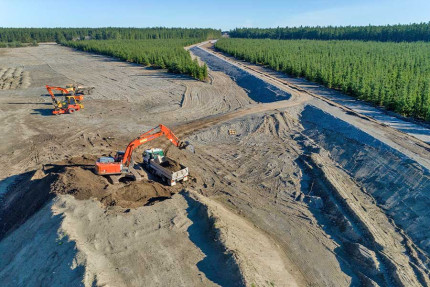
June 2023 - Central government budget bid rejected
Along with other regional councils, we made a joint submission to the Government asking for co-investment in flood protection. The proposal was for central and local governments to co-invest $257 million over the next three years, to fund 92 urgent flood protection projects across Aotearoa. This proposal was not included in the 2023-2024 Budget.
Learn more about the Government's rejection of co-investment in flood protection.
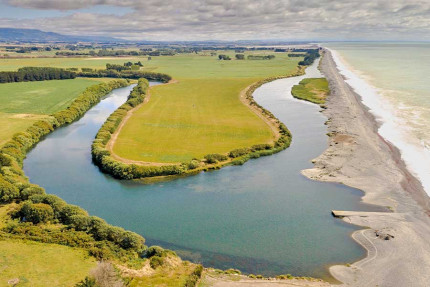
September 2023 - Funding for investigations into nature-based solutions for flood protection
We received $360,000 in funding from the Ministry for the Environment (MfE) to investigate how we can make more room for the river, how protection and restoration of coastal freshwater and brackish wetlands can provide coastal flood mitigation, and how Mātauranga Māori can be incorporated into flood protection measures to improve outcomes for the community.
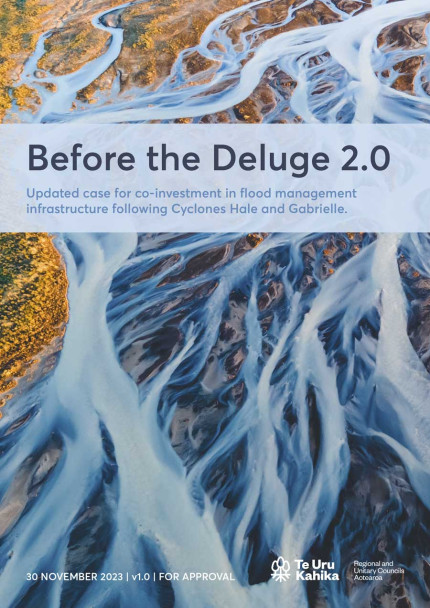
November 2023 - Updated ‘Before the deluge’ report released
An updated report was developed by Te Uru Kahika – Regional and Unitary Councils Aotearoa, outlining the case for co-investment in flood management infrastructure following Cyclones Hale and Gabrielle.
In this refreshed case, we put forward 80 flood protection projects spread across New Zealand to be delivered over the next three years, with all projects being completed by 2026/27. This entails a total capital expenditure of $329.35 million.

